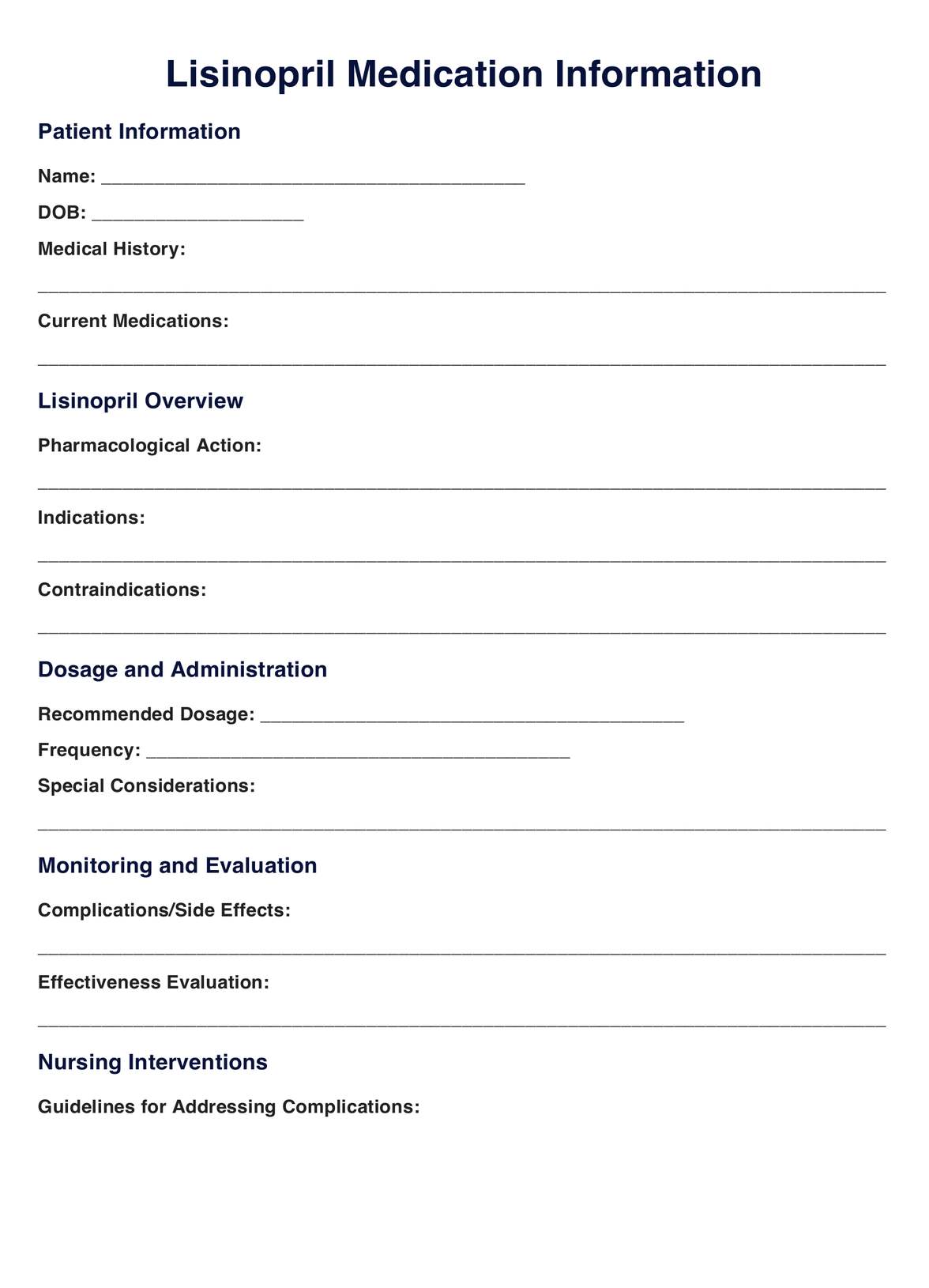Use the Carepatron platform to create customized templates easily. Simply access the platform, select the template option, and personalize it according to your requirements.

Lisinopril Medication Template
Optimize Lisinopril management with our customizable Medication Template. Streamline documentation and enhance patient care with ease.
Use Template
Lisinopril Medication Template Template
Commonly asked questions
Templates are utilized when managing patients prescribed Lisinopril. They serve as structured guides for healthcare professionals to document and communicate essential information about Lisinopril administration.
Healthcare professionals can use the templates to document patient-specific details, pharmacological actions, administration guidelines, and monitoring parameters. It aids in systematic and standardized documentation.
EHR and practice management software
Get started for free
*No credit card required
Free
$0/usd
Unlimited clients
Telehealth
1GB of storage
Client portal text
Automated billing and online payments











